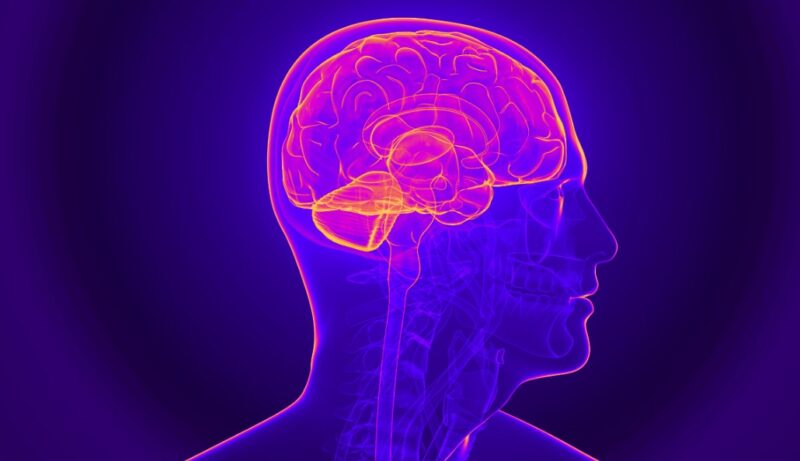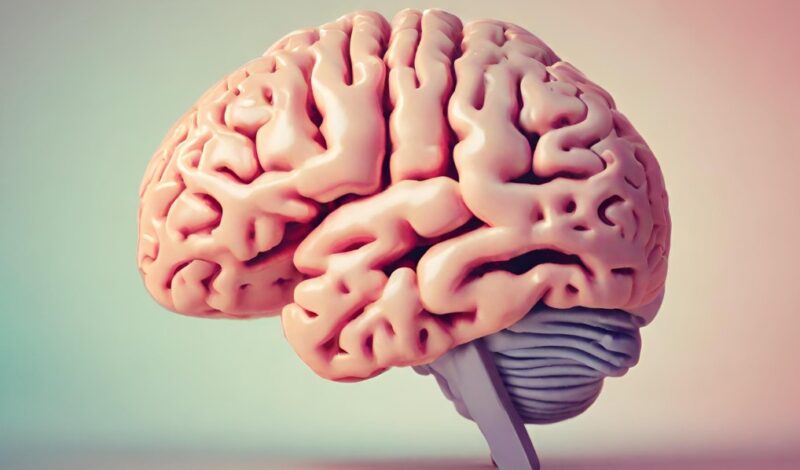When facing severe stress, the brain employs various mechanisms, much like a castle raising its drawbridge. One such defense is altering how we store and recall experiences.
This shift in cognitive processing can result in partial or complete lapses in recall, commonly termed as amnesia. Amnesia, in this context, is not just a term from movies. It’s a real psychological phenomenon where significant life events become inaccessible or lost.
This can range from a blurring of certain details to an outright inability to remember key personal information. Such a protective measure by the brain is a testament to its complexity and its innate desire to protect us from emotional pain.
Why Does the Mind Hide Painful Events?

The concept of the brain ‘hiding’ distressing memories is a fascinating yet complex one. During overwhelming events, our mind, in an effort to preserve our well-being, can reroute the way memories are stored.
This process involves creating alternate neural pathways, essentially locking away these distressing memories, making them difficult to access under normal conditions. This protective mechanism is akin to storing away items in a safe.
Just as valuables are kept secure and out of sight, traumatic memories are tucked away in the recesses of our mind, shielded from everyday recall. This phenomenon is not just a simple case of forgetting but a sophisticated mental process ensuring our emotional survival.
How Can Trauma Cause Memory Loss?
To fully grasp the phenomenon of memory alteration due to trauma, a look into the underlying science is essential. Neurological studies have shown how traumatic experiences can literally reshape the brain’s structure and function.
- The Brain’s Response: Neuroimaging studies reveal that traumatic experiences can alter brain regions like the amygdala, hippocampus, and prefrontal cortex, which are crucial for emotional regulation and memory processing. These changes can explain why memories become fragmented or inaccessible following trauma.
- Stress Hormones: Cortisol play a significant role in how memories are formed and retrieved. In high-stress situations, cortisol can affect the way memories are encoded and stored, leading to alterations in recall. This hormonal influence is akin to a chemical marker, tagging memories with emotional significance, sometimes to the point of altering their accessibility.
Different Types of Trauma and Recall Loss
Not everyone who experiences a traumatic event will face recall loss. This phenomenon varies greatly among individuals. Factors like mental health at the time of the event, the support received afterward, emotional resilience, and the nature and duration of the incident all play crucial roles in determining the impact on memory.
A Childhood Trauma can lead to same symptoms as well. It’s akin to different materials reacting differently to stress. Just as some materials bend or break under pressure, while others remain unchanged, our minds react uniquely to trauma. This variability is a reminder of the personalized nature of psychological experiences and the need for individualized approaches in mental health care.
What is the Connection with Mental Health Conditions?

The interplay between recall loss and various mental health conditions is intricate. This phenomenon is not confined to post-traumatic stress disorder (PTSD) but is also observed in other conditions. Here, we will explore how this manifests in different scenarios.
Dissociative Amnesia
Dissociative amnesia stands out as a mental health condition where forgetting is a primary symptom. Characterized by the inability to recall important personal information, often linked to distressing events, this condition highlights how our psyche can choose to ‘forget’ as a coping mechanism.
Consider dissociative amnesia as a circuit breaker in our electrical system. When the system is overloaded, the breaker trips to prevent damage. Similarly, when our mind is overwhelmed by traumatic events, dissociative amnesia acts as a protective measure, ‘tripping’ the usual memory processes to prevent further psychological harm.
Trauma Denial
Trauma denial is another psychological phenomenon related to recall loss. It’s a defense mechanism where the mind creates a distance from the distressing experience. This distancing, while serving as an immediate coping strategy, can have long-term implications on healing and mental well-being.
Imagine trauma denial as an emotional wall. This wall can provide immediate relief by shielding us from painful memories, but over time, it can become a barrier to addressing and processing the underlying issues, thus hindering long-term recovery.
Various Effects on Memory

The impact of trauma extends across various memory types: semantic (facts and knowledge), episodic (personal experiences), emotional (feelings associated with events), and procedural (skills and tasks). Each type of memory contributes to how we perceive and interact with the world, and trauma can disrupt this balance.
Semantic Memory
In cases of trauma, the way we understand and recall general knowledge (semantic memory) can be affected. This is akin to a library where books are misfiled or misplaced.
The information is still there, but accessing it becomes more challenging. Trauma can cause disruptions in how we process and recall general facts, impacting our day-to-day cognitive functions.
Episodic Memory
The impact on episodic memory, which involves personal experiences and events, can be particularly profound. Imagine your life as a photo album, with each picture representing a memory. Trauma can lead to missing pages or blurred images in this album, impacting the narrative of our personal history and identity.
Healing from Trauma

Healing from trauma and its associated symptoms, such as recall loss, is possible through various therapeutic approaches. Here, we explore some of the most effective methods used in mental health care.
Cognitive Behavioral Therapy (CBT) and Dialectical Behavior Therapy (DBT)
CBT and DBT are widely recognized for their effectiveness in addressing the psychological impact of trauma. CBT focuses on identifying and changing negative thought patterns, while DBT combines CBT principles with mindfulness and emotional regulation techniques.
These therapies are like tools in a repair kit. Just as different tools fix different parts of a broken machine, CBT and DBT offer diverse strategies to repair the psychological impact of trauma, addressing both thought patterns and emotional responses.
Prolonged Exposure (PE) Therapy and Eye Movement Desensitization and Reprocessing (EMDR)
PE therapy involves gradually exposing individuals to trauma-related memories and stimuli to diminish their emotional impact. EMDR, on the other hand, uses guided eye movements to help process and integrate traumatic memories.
Think of these therapies as guided journeys through a dark forest. With the help of a skilled therapist, individuals learn to navigate and eventually find their way through the dense, frightening memories, emerging with a greater sense of control and peace.
FAQs
How do you recover lost memories?
There is no definitive way to recover lost memories, as they may be distorted, incomplete, or even false. However, some possible methods include revisiting the places and people associated with the memories, engaging in reminiscence therapy, or using cues such as photos, music, or smells to stimulate recall.
Do I have false memories?
False memories are memories that seem real but are not based on actual events. They can be influenced by factors such as suggestion, misinformation, bias, or imagination. You may have false memories if you remember things that are contradicted by evidence, witnesses, or logic.
Are forgotten memories still in your brain?
Forgotten memories are not necessarily erased from your brain. They may still exist, but you are unable to access them due to interference, decay, or repression. Forgotten memories may resurface spontaneously, or with the help of cues or hypnosis, but they may not be accurate or reliable.
How do I know if I have repressed memories?
Repressed memories are memories that are unconsciously blocked from your awareness, usually because they are too traumatic or painful to remember. You may have repressed memories if you experience unexplained symptoms such as anxiety, depression, nightmares, or flashbacks, or if you have gaps in your memory of your childhood or a specific event. However, repressed memories are controversial and not widely accepted by experts, so you should be cautious about trusting them without corroborating evidence.
Last Words
Through a combination of professional therapy, support systems, and self-awareness, individuals can navigate this challenging path and emerge stronger and more resilient. While trauma can indeed lead to recall loss, it is crucial to remember that this is not an end but a part of a larger journey.

